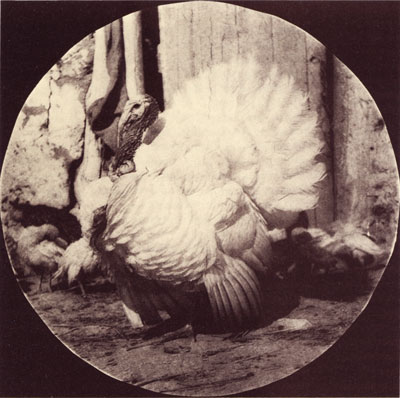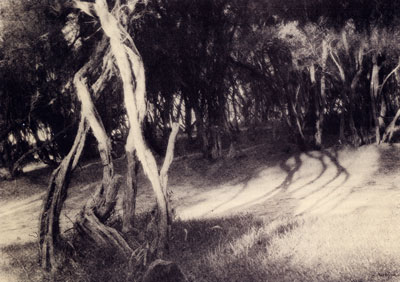JOHN
KAUFFMANN
1864-1942

John
Kauffmann was born in South Australia in 1864, the son of a storekeeper,
later proprietor, of an importing firm in Adelaide
from the 1870s,
A. Kauffmann & Son. John’s elder brother, Louis, was taken
into the business, whilst he was apprenticed as a clerk in an architect’s
office.
In 1887 Kauffmann travelled to England to gain further experience
but abandoned this work to become one of the many converts to pictorial
photography.
Kauffmann
studied photographic chemistry and the new reproduction processes
in England and Europe then returned to Adelaide
in 1897.
Although he
does not appear to have exhibited at the photographic salons of
the avant garde pictorialists of the Linked Ring, Kauffmann was
referred
to as a “medallist” on his return.
Kauffmann’s
work received quick recognition by the press on his return and
he gained
medals at the South Australian Photographic Society annual salons
and the main societies in New South Wales and Victoria.
By
1902 his standing was such that he was invited to judge his own
society’s
first international salons in 1902-03. Adelaide art circles’ tastes
in the 1890s were swinging to impressionist theories and Kauffmann’s
landscapes were admired for their delicate mist effects.
Harold
Cazneaux (q.v.) who was directly inspired to take up
photography as an art by seeing these exhibitions, always referred
to Kauffmann as the pioneer pictorialist of Australia.
In
1909 Kauffmann moved to Melbourne and by 1914 had set up his own
studio
in Collins Street.
Kauffmann
was given one-man shows by the Amateur Photographic Association
of. Victoria in 1910 and 1914,
and the latter show
was also shown
in Sydney. In 1919 a monograph on his work, The Art of John
Kauffrnann. was published. It was probably the first monograph
on an Australian
photographer.
Kauffmann’s
activities as a professional were largely illustrations for magazines
such as The Home
or books, one on Melbourne in 1931 for
Sydney Ure Smith, one on the Sunraysia District around
1920.
He does not appear to have done any portraiture and took
few pupils - his income
came from print sales for which he charged up to ten guineas.
Kauffmann
was an aloof personality and did not participate in lecturing
at societies or reviewing.
Kauffmann’s style evolved from
atmospheric naturalism through the exaggerated soft focus of the
1905-15 years and thereafter retained
a luminous softness and dark tonality.

The vogue for
Australian sunshine around 1920 made his work outdated and Kauffmann
expressed some bitterness
to Cazneaux as to the lack of recognition of his pioneering
work.
In
the 19305 Kauffmann turned to close-up floral studies (due probably
to poor eyesight) which are often striking and bold in composition
and modern despite the soft diffusion of detail.
In urban studies
Kauffmann also showed a receptivity to treating everyday or industrial
subjects
pictorially, quite unlike other pictorialists, as in plates 31
(Leaf Study, 1930s) and 46 (The Cloud, 1910).

